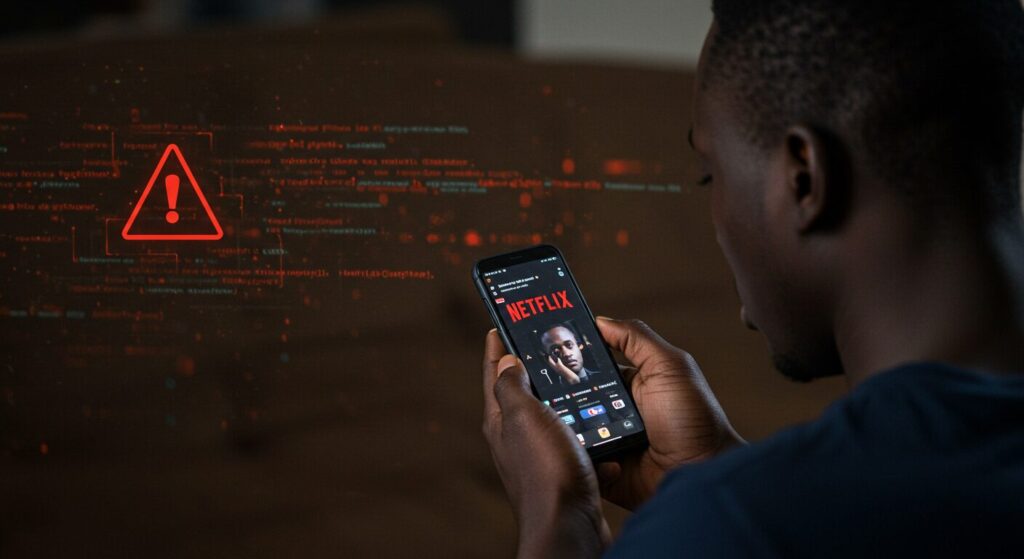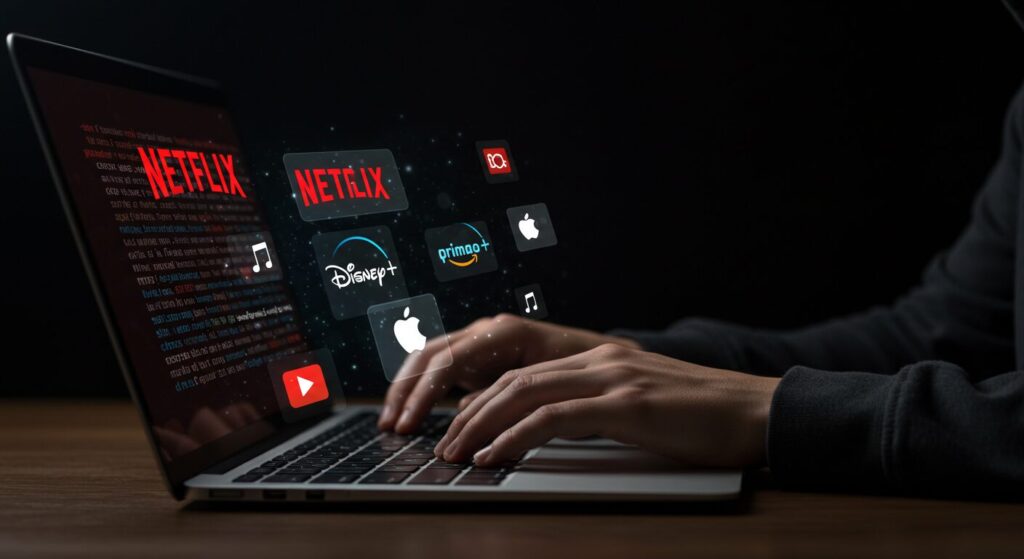More than seven million streaming accounts were compromised globally in 2024, cybersecurity firm Kaspersky reveals, warning that millions of Gen Z users—including in Nigeria—remain highly vulnerable as streaming services like Netflix, Disney+, and Amazon Prime Video become central to youth culture and digital identity.
In its latest findings, Kaspersky’s Digital Footprint Intelligence team says that 7,035,236 compromised credentials linked to popular streaming platforms were discovered last year, a figure that underscores the growing risks users face amid widespread digital entertainment consumption.

Netflix, the world’s most recognised streaming service and a major staple among young Nigerian audiences, accounted for the largest share of stolen credentials with 5.6 million compromised accounts. This was followed by Disney+ (680,850) and Amazon Prime Video, which recorded a smaller but still significant 1,607 leaked accounts.
Netflix leads list of breached streaming services
Netflix, the world’s most recognised streaming service and a major staple among young Nigerian audiences, accounted for the largest share of stolen credentials with 5.6 million compromised accounts. This was followed by Disney+ (680,850) and Amazon Prime Video, which recorded a smaller but still significant 1,607 leaked accounts.
Though these credentials were not breached directly from the platforms, they were harvested as part of wider cybercriminal credential theft campaigns, often fuelled by malware infections on users’ devices—especially from unofficial downloads, shady browser extensions, and pirated content.
While Brazil, Mexico, and India topped the list of affected countries, Kaspersky says the trends are globally relevant—including for Nigeria’s rapidly digitising youth population, which increasingly relies on streaming not just for entertainment, but for social bonding, pop culture engagement, and identity expression.
Streaming, malware and Gen Z: A risky digital cocktail
For Generation Z, whose members dominate Nigeria’s urban digital landscape, streaming platforms are more than content portals—they are cultural lifelines. From sharing memes on TikTok to binge-watching the latest series, their highly-connected online presence is deeply intertwined with how they learn, play and engage.
Yet this deep engagement exposes Gen Z to emerging cyber threats. According to Polina Tretyak, Digital Footprint Analyst at Kaspersky, “Streaming is more than entertainment; it’s a daily habit, a source of identity and community. But that emotional connection also creates a blind spot.”
“Malware embedded in unofficial apps or browser plugins silently harvests credentials and sensitive data, which then gets traded on underground forums,” Tretyak explains, noting that stolen data can rapidly spiral into identity theft or financial fraud—particularly where users reuse the same passwords across services.

For Generation Z, whose members dominate Nigeria’s urban digital landscape, streaming platforms are more than content portals—they are cultural lifelines. From sharing memes on TikTok to binge-watching the latest series, their highly-connected online presence is deeply intertwined with how they learn, play and engage.
Cybercriminals target what Gen Z trusts most
Kaspersky’s report highlights a stark reality: cybercriminals are increasingly targeting the very platforms Gen Z trusts. Once a device is infected, attackers not only collect login details but also harvest cookies, card details, and personal data—often distributing or selling them across dark web forums to boost reputation within hacker circles.
To fight back, Kaspersky has launched “Case 404”, an innovative cybersecurity game tailored for Gen Z, where players take on the role of AI-powered detectives solving virtual crimes inspired by real-world threats. Upon completing all levels, players receive a discount on Kaspersky Premium, a strategic move to turn cybersecurity education into action.
Protecting streaming lives in Nigeria: What to do
For young Nigerians and families increasingly dependent on streaming services for leisure and education, Kaspersky offers the following safety tips:
- Play “Case 404”, Kaspersky’s interactive game designed to build cybersecurity awareness in a fun and engaging way.
- Change passwords of affected or suspicious streaming accounts, and check for unusual activity.
- Avoid pirated content—subscribe to legitimate platforms and download only from official marketplaces.
- Verify websites and links before entering any personal data; phishing pages often mimic trusted brands.
- Watch file extensions—video files should never be “.exe” or “.msi”; these are likely malware.
- Use trusted security software, such as Kaspersky Premium, for real-time threat protection.
- Browse safely using VPN tools like Kaspersky VPN, especially on public or unsecured Wi-Fi networks.
Why this matters for Nigeria
As digital adoption accelerates across Nigeria, especially among the youth, ensuring online safety is no longer optional, experts say. Streaming platforms, while entertaining and educational, are now frontline arenas for cybersecurity breaches, and awareness remains the best defence.
With Nigeria’s growing internet base and the explosion of mobile-first entertainment, Kaspersky’s findings serve as a wake-up call—underscoring the need for a digitally resilient, cyber-aware Generation Z ready to navigate the evolving risks of the streaming age.
Source of Article


